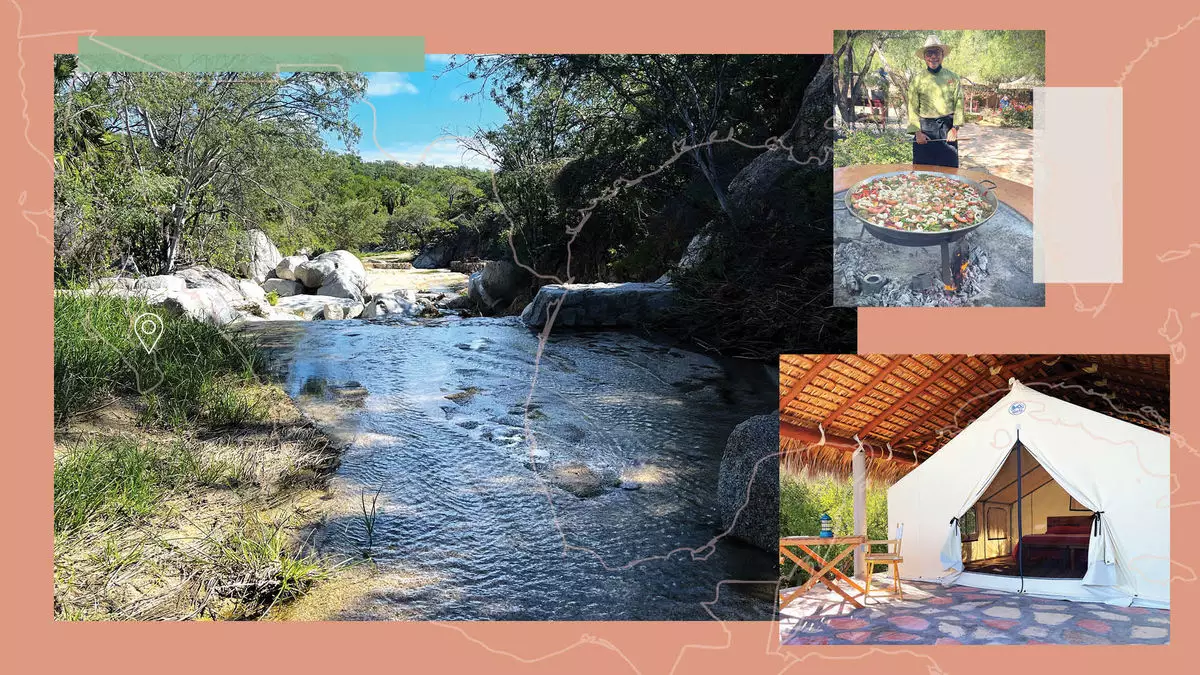Sebastian Del Valle hesitated to apply for the position of head guide at Rancho Cacachilas, a tourism venture established by Walmart heiress Christy Walton in Baja California Sur. He had heard unsettling rumors about the enterprise allegedly stealing water from neighboring towns and engaging in mining activities. These concerns prompted him to meet with the managing director, Luis Palacios, to seek clarification.
During their visit to the ranch, Palacios showcased the project as a significant research laboratory dedicated to water conservation. Despite initial skepticism, Del Valle witnessed firsthand the innovative methods implemented to preserve and retain water in the arid region. The use of gabions, rock bundles enclosed in wire, effectively slowed down runoff and enabled more water to infiltrate the ground. This approach demonstrated a commitment to sustainable water management practices, contrary to the accusations of water theft.
Addressing Del Valle’s concerns about mining activities on the ranch, Palacios clarified the company’s approach to acquiring mining rights. Through “research mining” efforts, iAlumbra collected rock and soil samples for analysis, ensuring compliance with government regulations while minimizing environmental impact. By reducing the size of the mining concession and actively petitioning for further reductions, the company aimed to responsibly exploit underground resources without jeopardizing the surrounding ecosystem.
Palacios provided insight into the ownership structure of the venture, emphasizing that Christy Walton’s involvement did not equate to direct ownership of Walmart. By granting Del Valle access to the company’s financial records, Palacios demonstrated the financial challenges faced by iAlumbra and Walton’s personal contributions to support land stewardship initiatives. Despite operating at a loss, the company remained committed to its conservation and regenerative projects.
After evaluating the information presented by Palacios and witnessing the tangible efforts towards environmental sustainability, Del Valle embraced his role as head guide at Rancho Cacachilas. Transitioning from skepticism to advocacy, he now champions the venture’s vision of responsible tourism and ecological conservation. His journey highlights the importance of critically examining preconceived notions and actively engaging with environmental initiatives to drive positive change.
The case of Rancho Cacachilas serves as a compelling example of the complexities involved in balancing economic development with environmental preservation. By addressing rumors, implementing innovative conservation strategies, and promoting transparency, the venture strives to demonstrate a commitment to sustainable practices in an environmentally sensitive region. Del Valle’s transformative experience underscores the potential for individuals to contribute meaningfully to the protection of fragile ecosystems and the promotion of responsible tourism practices.

